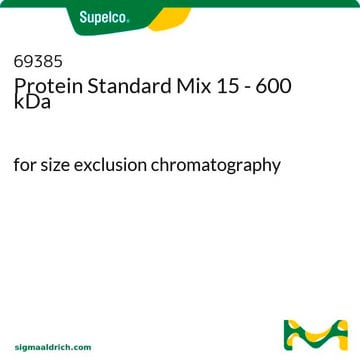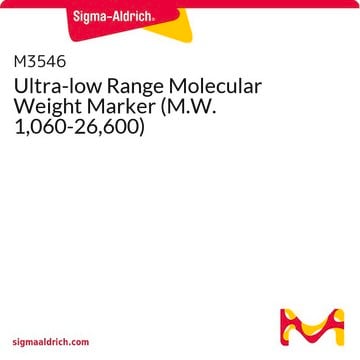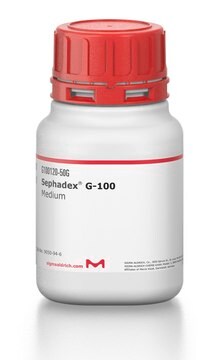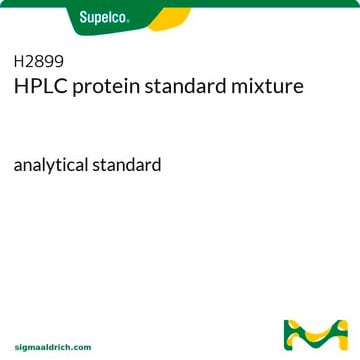MAB5372
Anti-Astrocytomas Antibody, a marker for Low Grade Astrocytoma, clone J1-31
ascites fluid, clone J1-31, Chemicon®
About This Item
Produtos recomendados
fonte biológica
mouse
Nível de qualidade
forma do anticorpo
ascites fluid
tipo de produto de anticorpo
primary antibodies
clone
J1-31, monoclonal
reatividade de espécies
guinea pig, rat, human, mouse
fabricante/nome comercial
Chemicon®
técnica(s)
immunocytochemistry: suitable
immunohistochemistry: suitable (paraffin)
western blot: suitable
Isotipo
IgM
Condições de expedição
dry ice
modificação pós-traducional do alvo
unmodified
Especificidade
Monoclonal antibody J1-31 was raised against crude homogenate of brain tissue from a multiple sclerosis (MS) patient (autopsy sample; Malhotra et al.: Microbios Letters 26:151-157, 1984). In human brain, MAb J1-31 recognizes an intracellular protein antigen (J1-31 antigen), which bands at approximately 30,000 daltons under reducing conditions for sodium dodecyl sulfate gel electrophoresis (Singh et al.: Bioscience Reports 6:73-79, 1986). By immunofluorescence microscopy, MAb J1-31 stains those cells that are also stained by antiserum to glial fibrillary acidic protein (GFAP), namely astrocytes, retinal Muller cells, and tanycytes in the ependyma (Predy et al.: Bioscience Reports 7:491-502, 1987). In addition, MAb J1-31 stains ciliated ependymal cells that do not express GFAP {Malhotra, SK (1989) J Neurosci Res. 22(1):36-49}.
Imunogênio
Aplicação
Neuroscience
Neuronal & Glial Markers
Immunohistochemistry The antibody works on paraffin embedded tissue sections.
Immunocytochemistry
Optimal working dilutions must be determined by the end user.
Ligação
forma física
Armazenamento e estabilidade
Informações legais
Exoneração de responsabilidade
Não está encontrando o produto certo?
Experimente o nosso Ferramenta de seleção de produtos.
Código de classe de armazenamento
10 - Combustible liquids
Classe de risco de água (WGK)
WGK 1
Ponto de fulgor (°F)
Not applicable
Ponto de fulgor (°C)
Not applicable
Certificados de análise (COA)
Busque Certificados de análise (COA) digitando o Número do Lote do produto. Os números de lote e remessa podem ser encontrados no rótulo de um produto após a palavra “Lot” ou “Batch”.
Já possui este produto?
Encontre a documentação dos produtos que você adquiriu recentemente na biblioteca de documentos.
Active Filters
Nossa equipe de cientistas tem experiência em todas as áreas de pesquisa, incluindo Life Sciences, ciência de materiais, síntese química, cromatografia, química analítica e muitas outras.
Entre em contato com a assistência técnica